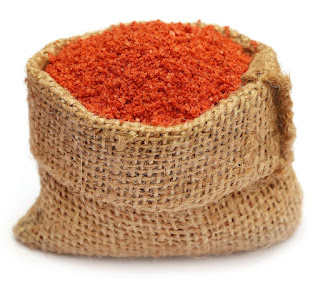Potash Fertilizers Market Set To Potential Growth, Valuable Industry Segments, Future Trends and Research Forecast to 2030
Potash fertilizers are a type of fertilizer that contains potassium as its main nutrient. Potassium is an essential nutrient required for the growth and development of plants. It plays a critical role in many physiological and biochemical processes within plants, including photosynthesis, water and nutrient uptake, enzyme activation, and protein synthesis. Potash fertilizers are commonly used in agriculture to supplement the natural potassium levels in soils and enhance plant growth and productivity.
There are several types of potash fertilizers, including:
Muriate of Potash (MOP): Also known as potassium chloride (KCl), MOP is the most widely used form of potash fertilizer. It contains about 60-62% potassium and is relatively inexpensive compared to other potash fertilizers. MOP is suitable for most crops and soil types, but it may not be suitable for chloride-sensitive crops or in soils with high chloride levels.
Sulfate of Potash (SOP): Also known as potassium sulfate (K2SO4), SOP contains about 50% potassium and is a good source of sulfur, another essential nutrient for plant growth. SOP is commonly used in crops that are sensitive to chloride, such as fruits, vegetables, and tobacco, or in soils with high chloride levels.
Potassium Nitrate (KNO3): This is a compound fertilizer that contains both potassium and nitrogen. It contains about 44-46% potassium and is highly soluble, making it readily available to plants. Potassium nitrate is often used in greenhouse and horticultural crops, as well as in fertigation systems.
Langbeinite: This is a naturally occurring potash fertilizer that contains potassium, magnesium, and sulfur. It is typically mined from underground deposits and contains about 22-23% potassium. Langbeinite is used in crops that require both potassium and magnesium, such as fruits, vegetables, and nuts.
Potassium Thiosulfate (KTS): This is a liquid form of potash fertilizer that contains potassium and sulfur. It is often used in foliar applications or as a source of potassium and sulfur in drip irrigation systems.
Potash fertilizers are typically applied to the soil or as foliar sprays, depending on the crop and specific nutrient requirements. They are an important component of modern agricultural practices and play a crucial role in improving crop yields and overall agricultural productivity. However, it's important to use potash fertilizers judiciously, following recommended rates and application methods, to avoid overuse and potential negative impacts on the environment.
Major players operating in the global potash fertilizers market include Israel Chemicals Ltd., EuroChem Group A.G., Agrium Inc., Uralkali PJSC, Yara International A.S.A., Migao Corporation, Sesoda Corporation, SQM S.A., Brazil Potash Corporation, and K+S KALI GmbH.
The demand for potash fertilizers is driven by several factors, including increasing global population, rising food demand, growing awareness about the importance of balanced plant nutrition, and the need to improve agricultural productivity.
✦ Increasing global population: As the global population continues to grow, there is a higher demand for food to feed the expanding population. Potash is an essential nutrient required for plant growth and is critical in improving crop yields and quality. With the need to produce higher yields to meet the rising food demand, the demand for potash fertilizers is expected to increase.
✦ Rising food demand: The demand for food is increasing due to changing dietary patterns, urbanization, and economic growth in developing countries. This has led to higher demand for agricultural products, which in turn drives the demand for potash fertilizers to improve crop productivity and meet the food demand.
✦ Growing awareness about balanced plant nutrition: Farmers and growers are increasingly recognizing the importance of balanced plant nutrition for optimizing crop yields and quality. Balanced fertilization practices, which include the use of potash fertilizers along with other essential nutrients, are being adopted to ensure that crops receive the required nutrients in the right proportions. This awareness is driving the demand for potash fertilizers in agriculture.
✦ Need to improve agricultural productivity: The shrinking arable land and the need for sustainable farming practices to optimize land resources are driving the demand for potash fertilizers. Farmers are adopting precision agriculture practices and optimizing nutrient management strategies to maximize yield potential from limited land resources. Potash fertilizers play a crucial role in improving nutrient management and enhancing crop productivity.
✦ Changing climatic conditions: Changing climatic conditions, such as drought, salinity, and extreme temperatures, are affecting crop growth and stressing plants. Potash is known to help plants cope with environmental stresses and improve their tolerance to adverse conditions. As climate change continues to impact agriculture, the demand for potash fertilizers to mitigate the effects of stress on crops is expected to increase.
Potash fertilizers are widely used in various agricultural and non-agricultural applications. Some of the key applications of potash fertilizers in the market include:
Crop Nutrition: Potash fertilizers are used to provide essential potassium nutrient to crops for optimal growth, development, and yield. They help in improving the quality and quantity of crops by enhancing root development, flower and fruit formation, and stress tolerance. Potash fertilizers are commonly used in a wide range of crops, including cereals, oilseeds, fruits, vegetables, and cash crops.
Horticulture: Potash fertilizers are extensively used in horticulture, including fruits, vegetables, ornamental plants, and floriculture. They are crucial for the proper development of flowers, fruits, and overall plant health. Horticultural crops have specific potassium requirements, and potash fertilizers are applied at various stages of growth to meet these requirements and ensure optimal yield and quality.
Cash Crops: Potash fertilizers are also used in cash crops such as cotton, sugarcane, tobacco, and potatoes, where high potassium demand is required for optimal growth and yield. Potash fertilizers are applied during different stages of crop growth to meet the potassium requirements and enhance the yield and quality of cash crops.
Non-Agricultural Applications: Potash fertilizers are also used in non-agricultural applications, such as in the production of industrial crops, turf, and ornamental plants. They are used in turf management, golf courses, landscaping, and in the production of ornamental plants for aesthetic and recreational purposes.
Livestock Feed: Potash fertilizers are used as a source of potassium in livestock feed. Potassium is an essential mineral for the health and well-being of animals, and potash fertilizers are used to supplement the potassium requirements of livestock in their feed.
Hydroponics: Potash fertilizers are used in hydroponic systems, which are a method of growing plants without soil. Hydroponics relies on nutrient-rich water solutions, and potash fertilizers are used to provide the essential potassium nutrient to support plant growth in hydroponic systems.
Other Applications: Potash fertilizers are also used in various other applications, such as in the production of biofuels, in water treatment processes, and in the manufacturing of detergents and soaps.
Potash fertilizers offer several benefits in agricultural and horticultural practices, as well as in other applications. Some of the key benefits of potash fertilizers in the market include:
◘ Improved Crop Yield and Quality: Potash is an essential nutrient for plant growth and plays a crucial role in various physiological processes, including flower and fruit development, root development, and overall plant health. The application of potash fertilizers helps in meeting the potassium requirements of crops, resulting in improved crop yield and quality. Potash fertilizers are particularly beneficial for high-potassium demanding crops, such as fruits, vegetables, and cash crops, where they help in optimizing yield potential and enhancing the quality of harvested produce.
◘ Balanced Plant Nutrition: Potash fertilizers are a key component of balanced fertilization practices, along with nitrogen and phosphorus fertilizers. Balanced fertilization ensures that crops receive the essential nutrients in the right proportions, optimizing their growth and development. Potash fertilizers help in maintaining the proper nutrient balance in the soil and prevent nutrient deficiencies, which can result in reduced yields and poor crop quality.
◘ Enhanced Plant Health and Stress Tolerance: Potash has been shown to improve plant health and increase stress tolerance in crops. Potassium helps plants to withstand various environmental stresses, such as drought, salinity, and extreme temperatures, by regulating water uptake and reducing water loss through stomatal closure. Potash fertilizers also aid in the synthesis of stress-related proteins and enzymes in plants, helping them to cope with adverse conditions and improve overall stress tolerance.
◘ Sustainable Agriculture: The use of potash fertilizers can contribute to sustainable agriculture practices by optimizing nutrient management and reducing nutrient losses to the environment. Balanced fertilization with potash helps in preventing nutrient imbalances, reducing the risk of nutrient runoff and leaching, and minimizing environmental pollution. This promotes sustainable nutrient management practices, conserves natural resources, and minimizes the ecological impact of agricultural practices.
◘ Increased Profitability for Farmers: The use of potash fertilizers can lead to increased profitability for farmers by improving crop yields and quality. Higher yields and better-quality crops can fetch higher prices in the market, resulting in increased income for farmers. Potash fertilizers also contribute to reducing the risk of crop losses due to nutrient deficiencies or environmental stresses, which can result in financial losses for farmers.
◘ Wide Range of Applications: Potash fertilizers have diverse applications in agriculture, horticulture, hydroponics, livestock feed, and other industries, providing flexibility and versatility in their use. They can be used in various crop types, soil types, and climatic conditions, making them suitable for different agricultural practices and cropping systems.
In conclusion, potash fertilizers offer several benefits in improving crop yield and quality, maintaining balanced plant nutrition, enhancing plant health and stress tolerance, promoting sustainable agriculture, increasing profitability for farmers, and providing versatility in their applications. These benefits make potash fertilizers an essential component in modern agricultural and horticultural practices, contributing to improved agricultural productivity and sustainability.



.png)
Comments
Post a Comment